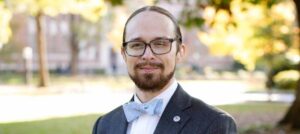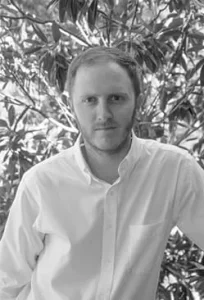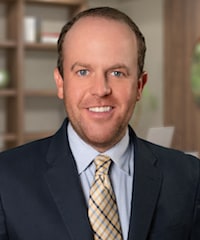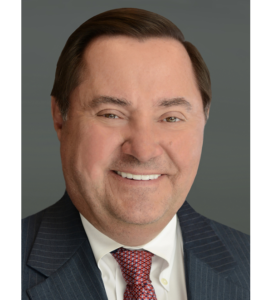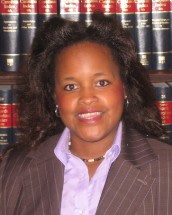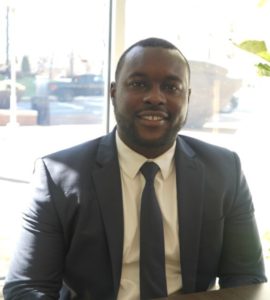Best Criminal Lawyer in Charlotte
Daniel Hatley
Criminal Lawyer
Daniel “Dan” Hatley opened the Law Office of Daniel A. Hatley in April of 2009 and has been helping drivers navigate the tangled web of traffic law ever since. Mr. Hatley is an experienced negotiator and advocate, whether working in the Courts or behind the scenes in one of his many non-profit endeavors. As a member of the Millennial Generation, Dan understood intuitively the advantages that technology could bring to the provision of legal services. As a native of the State of North Carolina, he also understood that people highly value honest and diligent service.
This law office is a marriage of those two ideas – efficiency and quality. Outside of the office, Mr. Hatley serves on the Board of Directors at Extraordinary Ventures, Inc. and on the Human Rights Committee of the Autism Society of North Carolina. In his private life, Mr. Hatley and his family reside in Chapel Hill and can regularly be found on Franklin St.
Samuel J. Randall IV
Criminal Lawyer
Since 1998, Samuel J. Randall, IV has built a solid reputation among his peers, adversaries, and the judiciary in North Carolina as an aggressive and skilled criminal defense lawyer and advocate for his clients. Mr. Randall has represented hundreds of clients in criminal defense matters in the Federal and State courts of North Carolina. Mr. Randall’s clients have been accused of every crime in the book, ranging from the most serious of matters, such as First Degree Murder and Drug Trafficking to lesser charges such as Shoplifting, and Traffic Violations.
Mr. Randall handles criminal matters in State and Federal Courts throughout North Carolina. His commitment to representing individuals charged by the State and Federal government led Mr. Randall to become a Board Certified Specialist in both State and Federal Criminal Law by the North Carolina State bar in 2004. He was recertified in 2010. Currently, there are over 28,000 licensed attorneys in North Carolina but only 53 are Specialists in both State and Federal Criminal law.
Mr. Randall grew up in Charlotte, North Carolina. He attended Quail Hollow Junior High school and South Mecklenburg High School. In 1987, Mr. Randall joined the United States Navy and served as a Hospital Corpsman until he was Honorably Discharged in 1991. During his time in the Navy, Mr. Randall became qualified as an Aircrew member and performed Search and Rescue missions as an in-flight medical technician. He is a Gulf War Veteran having served with HMM-226 during operation Desert Storm where he provided inflight medical assistance to wounded troops. After the Navy Mr. Randall attended the University of North Carolina at Wilmington where he received his Bachelor of Arts degree in Philosophy and Religion. Mr. Randall received his law degree from California Western School of Law in San Diego California.
In 2012, Mr. Randall graduated from the Gerry Spence Trial Lawyers College in Wyoming and in 2013 graduated from both Graduate programs offered by the Trial Lawyers College.
Clinton R. Davis, Esq.
Criminal Lawyer
With an imposing arsenal of over 15 years in the trenches of all facets of the criminal justice system, Attorney Clint Davis leads the firm’s robust litigation team, carrying with him a potent blend of experience, acumen, and an unyielding commitment to securing victories for our clients.
Born and bred in Hampton Roads, Virginia, Clint sharpened his teeth in Eastern North Carolina as a police detective. This immersion in law enforcement has uniquely equipped him with invaluable insights into the criminal justice system, affording him an unmatched ability to strategize, anticipate, and counter the tactics employed by the prosecution.
Clint’s academic journey is a testament to his enduring quest for excellence. Graduating magna cum laude from the University of Mount Olive with a Bachelor of Criminal Justice and Criminology, Clint continued to demonstrate his academic prowess at Campbell University’s Norman Adrian Wiggins School of Law. Not only did he earn a coveted spot on the Dean’s List, but he also led the editorial board of the Campbell Law Observer, further showcasing his intellectual fortitude.
Clint’s commitment to justice and his unrelenting pursuit of knowledge were further exhibited during his clerkship for the Honorable Wanda Bryant at the North Carolina Court of Appeals, and during his time in multiple district attorneys’ offices.
After law school, Clint stormed the courtrooms of the Mecklenburg County District Attorney’s Office as a prosecutor before transitioning to private practice. He’s since engaged in criminal defense battles and a variety of civil litigation, including firearm rights, family law, landlord/tenant disputes, and estate planning.
Our team is bolstered by Clint’s addition, a seasoned litigator who comprehends that victory isn’t accidental. It’s the fruit of meticulous planning, intense preparation, and a profound understanding of complex legal issues. With Clint in your corner, you can rest assured you have a fighter who won’t merely step into the courtroom, but will storm it, ready and eager to wage war for your rights.
Kevin Marcilliat
Criminal Lawyer
I tried two criminal cases when I was still a law student, and I won not-guilty verdicts on both (you can start handling misdemeanors during your third year). I tell you this not because I think I’m special, but so you can see that I was dedicated to becoming a criminal defense attorney since day one.
Perhaps the greatest benefit in my continued development as a successful advocate for my clients is the incredible mentors that I have had along the way. By the time I graduated from law school, I had already interned for the largest public defender’s office in North Carolina (the Mecklenburg County Public Defender’s Office) and then for the Federal Public Defender for the Eastern District of North Carolina in Raleigh. Upon my start in private practice, I was assigned to defend my first felony case the first week on the job.
Today, I work for Marcilliat & Mills PLLC, and I would not want to work anywhere else. I’ve handled hundreds of criminal cases in more than 60 counties across the State, as well as all three of North Carolina’s federal districts. I have achieved successful results for clients in the full range of criminal cases, including driving while impaired (DWI/DUI) offenses, felony drug charges, embezzlement, assaults, sex crimes and federal offenses. I also maintain a busy white-collar practice defending individuals and businesses from a variety of state/federal government investigations by the IRS, U.S. Department of Agriculture, Medicaid Investigations Division (MID), and others.
Chris Beddow
Criminal Lawyer
Chris Beddow is a Criminal Justice and Family Law Associate Attorney with Powers Law Firm, PA. As a licensed member of both the North Carolina State Bar and South Carolina State Bar, Mr. Beddow is eager to represent clients who are facing misdemeanor and felony criminal charges and family law related issues throughout the Carolinas. “The ability to help people on a daily basis and make a real, tangible difference in their lives is what drives me every day. The fact that I am afforded the opportunity to assist people throughout the Carolinas, a place that I call home, makes it more special. I am proud to be an advocate on behalf of clients in the Carolinas.”
Mr. Beddow has extensive experience representing clients in North and South Carolina on a variety of issues pertaining to civil and criminal litigation matters. Recently, Mr. Beddow was named one of the Top 40 under 40 trial lawyers in the State of North Carolina by The National Trial Lawyers Association.
As a criminal defense and family law attorney at Powers Law, Mr. Beddow is deeply committed to providing zealous representation to his clients. “Clients come to you to resolve some of the most dark, desperate and trying circumstances of their lives. As a trusted confidant and advocate on behalf of my clients, it is my purpose and passion to strive for the best possible outcome.”
George V. Laughrun II
Criminal Lawyer
George V. Laughrun II is the senior partner at GCLLG and has been practicing with the firm since 1982. For 2 years, prior to joining the firm, he worked as an Assistant District Attorney in Mecklenburg County (North Carolina), prosecuting cases in both District and Superior Court.
During his years of practice, Mr. Laughrun has tried over 150 jury trials and cases in all federal courts within this district and in other jurisdictions including: The United States 4th Circuit Court of Appeals, The North Carolina Court of Appeals, The North Carolina Supreme Court and on December 5, 1983 he was also admitted to practice before The United States Supreme Court.
Mr. Laughrun received his undergraduate degree from Appalachian State University, in 1977, and his law degree from Cumberland School of Law at Samford University, in 1980.
He graduated cum laude from both institutions.
Mr. Laughrun has been a Certified Criminal Law Specialist, as defined by the North Carolina State Bar, since 1991, and has held an “AV” Preeminent rating from members of the Bar and Judiciary for more than 25 years. He concentrates his practice on mostly criminal and DWI cases.
In addition, he is a member of the National College of DWI Defense, the American Bar Association (since 1980), the North Carolina Bar Association and the North Carolina Academy of Trial Lawyers. He also served on the Mecklenburg County Bar Executive Committee, from 1994 to 1997.
Mr. Laughrun was named one of Charlotte’s “toughest lawyers” and profiled in Charlotte Magazine for his work on DWI cases. The Charlotte Observer wrote that in 2004 and 2005, no other attorney obtained more DWI acquittals and dismissals as Mr. Laughrun. Each year since 2005, Mr. Laughrun has been named as one of North Carolina’s Super Lawyers by City Magazine. Each year since 2006, he has been named by Business North Carolina as one of North Carolina ‘s LEGAL ELITE in the area of Criminal Law and DWI cases.
In 2011, 2012 and 2013, Mr. Laughrun was listed in Charlotte Magazine’s “Super Lawyer” section as one of the Top 100 attorneys in the state. In addition, Mr. Laughrun was honored by America’s Most Honored Professional by the American Registry.
Mary Leazer Rogers
Criminal Lawyer
If you are facing a state or federal criminal charge, you want a defense lawyer who will give you the time and attention you need to achieve the best possible outcome. At the Law Office of Mary Leazer Rogers in Charlotte, North Carolina, we will listen to you, provide you with an honest assessment of your case, and advocate aggressively and relentlessly on your behalf. Our firm represents clients who are under criminal investigation or have been charged with DWI, drug crimes, traffic violations, probation violations, robbery, theft, larceny, weapons violations, assault, and violent crimes.
Attorney Rogers served as a prosecutor in the District Attorney’s office in Mecklenburg County for several years, where she handled the very types of cases she defends today. She knows how the prosecution builds and tries cases, and understands the arguments to make to counter the prosecution. She is highly regarded for her eloquence and determination as a criminal defense lawyer, and has a strong history of achieving successful outcomes. Attorney Rogers is admitted to practice in all North Carolina state courts, as well as the U.S. District Court for the Western, Middle, and Eastern Districts of North Carolina. She is native to this area, and truly cares about the clients she serves.
Mary Rogers was born in Charlotte and her family has been in Charlotte going back 200 years. She was educated in Charlotte from Elementary school, Graduated from North Mecklenburg High School in 1988, Davidson College in 1992 and from the University of North Carolina Chapel Hill in 1995. She has grown up and served the Charlotte area her entire career. She has a passion for Charlotte and helping those that need legal representation the most.
Ryon David Smalls
Criminal Lawyer
Raised in Charleston, SC, Ryon David Smalls attended James Island Charter High School before matriculating through the University of South Carolina – Upstate as a history major. While in Spartanburg, Ryon took advantage of the opportunities to develop himself as a leader amongst his peers, as some of his proudest moments were becoming a member of Kappa Alpha Psi Fraternity, Inc., enlisting in the Army National Guard, and founding Race 4 Achievement, Inc., a not-for-profit organization. Since relocating to Charlotte, Ryon has been commissioned as an officer in the National Guard, currently holding the rank of Captain and becoming a Battery Commander. He graduated from law school with Pro Bono Honors and has served on numerous Mecklenburg County and the City of Charlotte citizen boards. Ryon holds a license to practice law in Washington D.C. and North Carolina. He is married to Monika V. Smalls, a local social worker, and they enjoy the company of their Labrador Retriever, YoYo.
In his spare time, Ryon enjoys traveling, spending time with friends and family, and finding ways to serve the community around him.
Different Types of Pleas
In the criminal justice system, defendants can enter various types of pleas in response to the charges against them. These pleas determine the next steps in legal proceedings. Below are the common types of pleas:
1. Guilty Plea
- Definition: The defendant admits to committing the crime as charged.
- Implication: This plea often leads to sentencing without a trial. However, it may also come with a plea agreement, where the defendant receives a lesser sentence in exchange for the guilty plea.
2. Not Guilty Plea
- Definition: The defendant denies the charges or asserts innocence.
- Implication: A not guilty plea leads to a trial where the prosecution must prove the defendant’s guilt beyond a reasonable doubt. The defendant may present a defense.
3. No Contest (Nolo Contendere) Plea
- Definition: The defendant neither admits guilt nor contests the charges.
- Implication: While not an admission of guilt, this plea has the same legal effect as a guilty plea in criminal court. It’s often used when the defendant wants to avoid a civil lawsuit.
4. Alford Plea
- Definition: The defendant maintains innocence but acknowledges that sufficient evidence exists for a conviction.
- Implication: This plea allows a defendant to plead guilty while still asserting innocence, typically to avoid a harsher penalty.
5. Not Guilty by Reason of Insanity Plea
- Definition: The defendant admits to the act but claims they were legally insane at the time.
- Implication: If successful, the defendant is typically committed to a mental health institution instead of prison.
6. Guilty but Mentally Ill Plea
- Definition: The defendant admits guilt but claims they were mentally ill during the crime.
- Implication: If the plea is accepted, the defendant may serve time in a mental health facility before completing the remainder of their sentence in prison.
7. Conditional Guilty Plea
- Definition: The defendant pleads guilty but reserves the right to appeal a specific legal issue.
- Implication: If the appeal is successful, the plea or conviction may be overturned.
Each plea option carries different consequences, and defendants typically consult with legal counsel to determine the best course of action based on the specifics of their case.


